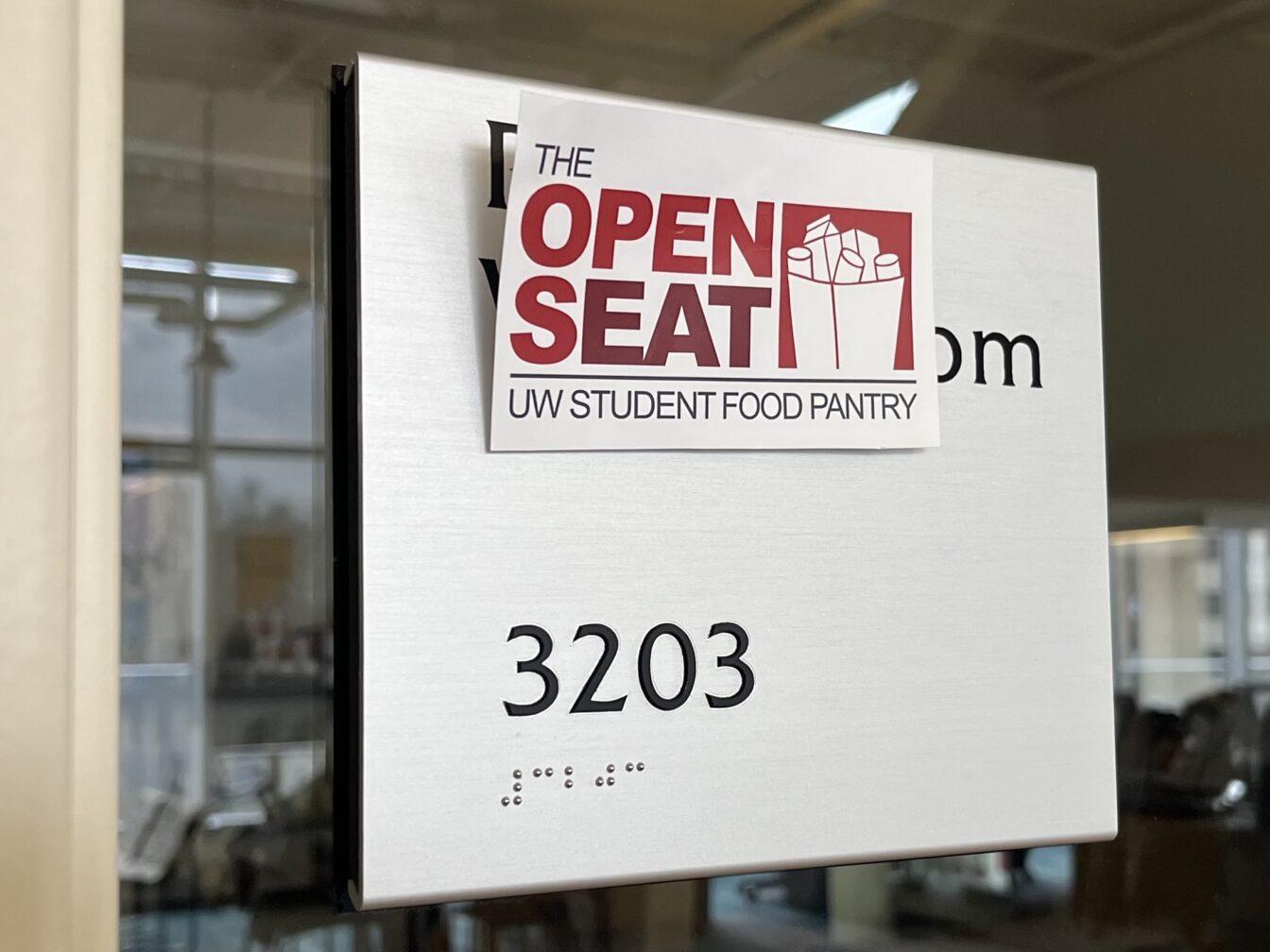An increase in the number of people being served by the Open Seat Food Pantry is causing concerns about food insecurity on the University of Wisconsin campus.
The Open Seat Food Pantry operates under the Associated Students of Madison and aims to help alleviate food insecurity on the UW campus, according to the food pantry’s mission statement.
Run by students, for students, the food pantry distributes in two locations across campus — one on the third floor of the Student Activity Center and one at Eagle Heights Community Center, director of distribution Bonnie Jin said.
The primary location at the SAC is a large room where canned goods and dried foods are stored. Additionally, there is a space for hygiene products in the room, Jin said. This location is open at three alternating times throughout the week.
Distribution at the Eagle Heights Community Center began during the COVID-19 pandemic when the primary location of the food pantry was closed or inaccessible to individuals. The distribution at this center has continued and occurs once weekly, with Open Seat employees and volunteers organizing a small setup.
“A lot of people told us they weren’t able to come to the center of campus because they lived in Eagle Heights,” Jin said. “So we decided to just go to Eagle Heights and do a mini setup there every week.”
UW to break ground on new Computer, Data & Information Sciences building
The food distributed by the Open Seat Food Pantry is purchased from the Second Harvest Foodbank of Southern Wisconsin, including weekly shipments of produce and dairy.
During the COVID-19 pandemic, the Open Seat collected and distributed food from Second Harvest free of charge, which allowed the food pantry to accumulate money, according to Jin.
But with recent increases in the number of people being served by the Open Seat at both locations, the overall cost of operation has increased. The Open Seat went from ordering about half a ton of food weekly to now ordering about two tons of food weekly to keep the food pantry stocked, Jin said.
“Now that we have to buy loose produce again and the demand has increased so much, it’s making a dent in our budget,” Jin said. “We want to continue serving people the same way we are now. That’s just one of the many issues. Money is something we notice, but it’s not our primary focus.”
During the spring 2022 semester, the Open Seat served 744 people. The following semester, during fall 2022, the Open Seat served 2,300 people, according to director of outreach Solomon Lubar.
The Open Seat has expanded to best serve those in need. Prior to a few years ago, the food pantry only had two employees, but recently hired a third, Lubar said.
But the Open Seat is currently funded by ASM, with employee wages paid using segregated fees. Monetary and food donations also help the food pantry operate, but as demand grows, the food pantry needs more support, according to internal director May Jagodzinski.
“Budget-wise, we’re affected because we order food weekly,” Jagodzinski said. “The university doesn’t fund us at all — it’s entirely monetary or food donations, which is super problematic seeing that there’s growing demand.”
Navigating a tighter budget is only one challenge the Open Seat is facing amid increased demand.
The Open Seat’s overall capacity to operate and provide for the community as well as possible can also be impacted, according to Jin.
“It’s concerning to us because the Open Seat is a pretty small pantry and there will eventually come a time if this growth keeps continuing where our need can’t really keep up with the demand,” Jin said.
PAVE hosts keynote speaker Katie Koestner for Sexual Assault Awareness Month
The number of people served by the Open Seat has increased overall — but especially among graduate and international students on the UW campus, Jin said.
And the increase in demand is not only reflected at the Open Seat, but at The Keep — another Madison-wide food pantry — and other Big Ten food pantries as well, Jin said.
“The main thing is just trying to investigate why this demand is increasing so much, especially from graduate students,” Jin said. “The cost of food and inflation, as well as restrictions on food stamps and other policies affect a lot of people.”
Moving forward, this increased demand needs to be analyzed from a systemic perspective, Jagodzinski said.
Open Seat staff worked with ASM to meet with UW Dean of Students Christina Olstad to discuss solutions for increased food insecurity on campus. The preliminary conversation included the proposal of hiring a full-time campus food security coordinator, according to Jagodzinski.
Jagodzinski pointed to other Big Ten schools — including the University of Minnesota and Penn State University — that have hired full-time staff to address food insecurity on campus. These professionals have backgrounds in social services and can help coordinate efforts to address basic needs across these campuses.
Open Seat staff also considered additional methods of distribution to help address this issue — including potentially installing a permanent community fridge in Eagle Heights and bolstering outreach efforts, Jagodzinski said.
Working with ASM leadership will be critical for the Open Seat moving forward — leveraging connections to hopefully make policy changes at UW.
“It’s our hope that the student leaders after us will continue to advocate for this issue,” Jin said. “It’s really something I hope won’t just get swept up under everything else that’s going on.”


















